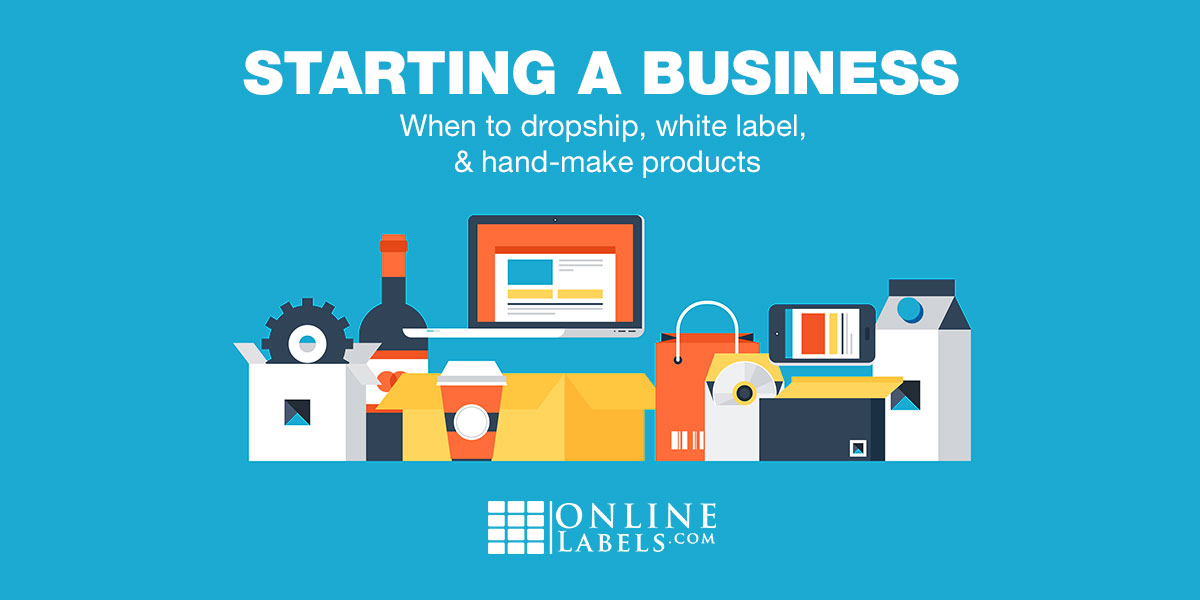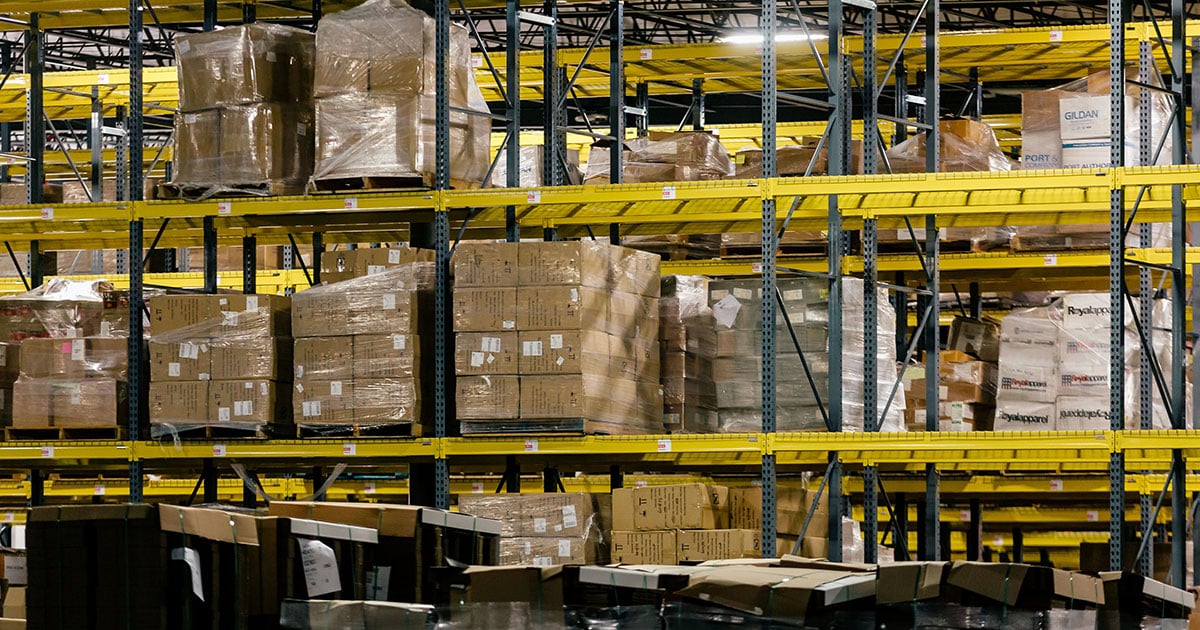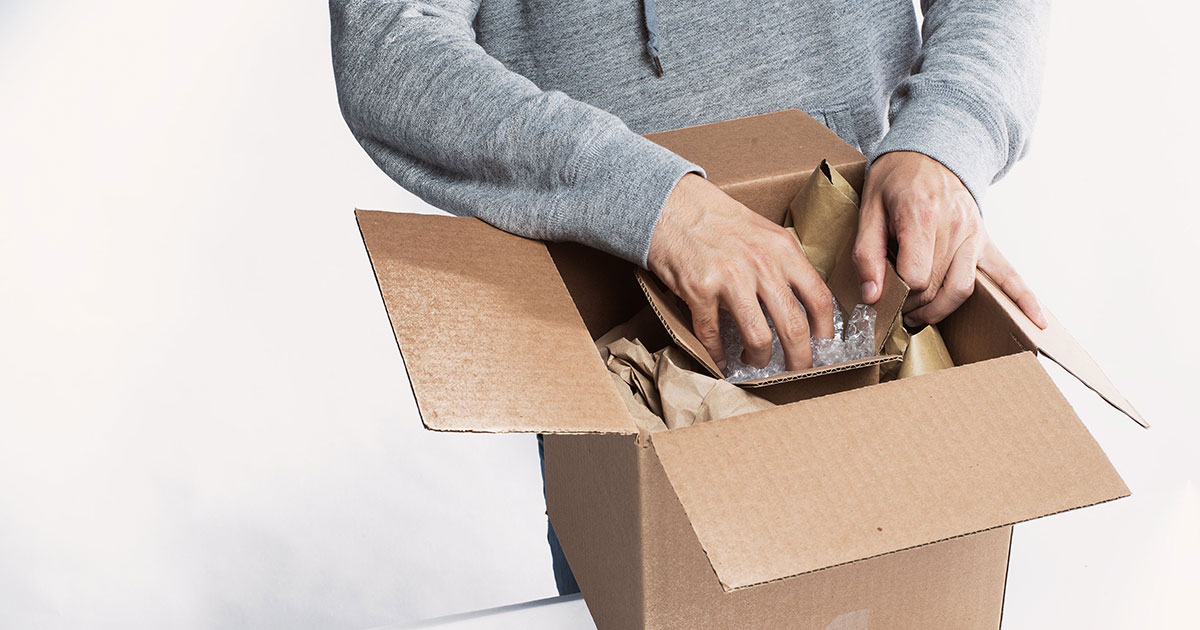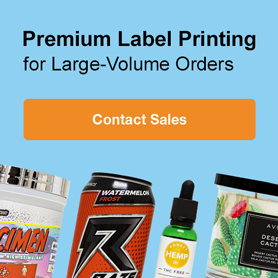Choosing Between Dropshipping, White Labeling, & Handmade

Most people who sell a product online are either dropshipping, white labeling, or hand-making. All have strategic perks, and of course, each has its own drawbacks as well. Depending on your goals, one strategy may appeal to you over the others.
We talked to several business owners to learn about each so you can determine your best course of action.
Dropshipping

Dropshipping is the middle-man in the purchasing process – it's the method of shipping directly from the supplier to a customer, without you ever touching the product.
Using this strategy, there is usually no branding or custom packaging, you are simply getting a product from one point to another. Marketing is the name of the game here, like with most ecommerce, but you're marketing a product that you never handle.
Benefits Of Dropshipping
Inventory
When dropshipping, you're essentially ordering from the seller on an as-needed basis so there's no need to buy and store a ton of products. This offers you a lot of flexibility to test different types of products and see what appeals to your customers without investing a lot upfront or losing too much money.
"Dropshipping is an entry-level business model best suited to those that have little-to-no experience selling products online. This is due to the low startup cost. While I say it is an entry-level business model that does not mean that it is easy. Just the risks involved are lower compared to other business models. You can start out dropshipping with a few hundred dollars. If your business fails, you aren't losing out on a huge investment compared to starting a private label company." – Drew Kalinski.
Flexibility
You have complete control over what types of products you want to market and what price points you're interested in selling at. You can market a variety of items or stick to a niche that suits your consumers – or maybe try a little of both to test what works best.
Create advertising campaigns for different products to see what people are interested in, what price points work best, and what you should stop advertising. The only money you're losing is ad dollars – relatively low-risk and low-commitment.
"This model is nice because you can add new categories and price points so easily by finding the right brands, and there are already customers out there familiar with many of them." – Travis Nagle, Viesso
Explore pricing strategy in depth in our comprehensive product pricing guide.
Brand Recognition
If you're able to dropship from reputable brands, half the work is essentially done for you. It's typically much easier to market a brand people already have a connection to than one they've never seen before.
Profit Margin
The main costs associated with dropshipping are website and marketing fees, so this business model can offer a greater profit margin than those involving branding, packaging, and shipping costs.
"We chose dropshipping because there are no white labeling costs and the overhead is lower, which means our profit is higher. We found that we earn more money by dropshipping rather than warehousing and packaging our own products." – Alexandra Tran, Hollingsworth
Get help determining your profit margin.
Passive Income
If you're comfortable marketing and maintaining your ecommerce store, dropshipping can be a great opportunity for passive income. Once you're able to draw customers – and keep interest up – the effort is relatively minimal.
"We started out by asking ourselves whether we wanted to build a brand or not. As the answer was no, we decided to pursue dropshipping due to its passivity. The time we save with dropshipping we can spend on marketing and advertising, which drives more visitors to our site and therefore bolsters revenue and profitability." – Janelle Jones, Sublime Skin Lab.
Drawbacks Of Dropshipping
Shipping Speed
Dropshipped goods are most commonly ordered from Chinese factories using sites like Alibaba. An order coming from China could take about 3-4 weeks to arrive, which is not something most Americans are used to – especially if they aren't aware the order is shipping from another country.
Packaging
Since you have no control over the way the shipment is packaged, you're at a bit of a disadvantage when it comes to marketing tools that increase repeat business. Brands are built on customer experience, and typically, the customer experience in dropshipping is a small yellow envelope.
Quality Control
There isn't any on your end. Depending on the products you dropship, this may or may not be a problem. Keep in mind that if there is a quality issue, customers will reach out and you'll need a pre-planned solution.
Competition
Dropshipping is relatively easy to set up and not a new concept, so competition is high. Popular products can be incredibly competitive so the name of the game is marketing – but finding a way to cut through the noise and get eyes on your store can also be very difficult.
"My advice to anyone considering it would be to understand that this is one of the most popular methods out in the online space right now. Because of this, it is EXTREMELY competitive, revolving around people copying each other's products. Five or so years ago, you could have simply placed any product on a Facebook ad and sold it easily but this is not the case anymore." – Giovanni Prieto.
Long-Term Potential
Since you're not in control of the product customers receive and have no control over the experience they have, dropshipping can lead to customer complaints which can lead to a short-term business model. Without the ability to quality control, you may end up with few repeat customers and a business you find difficult to grow over time.
"The main dropshipping strategy revolves around short term profit made on large margins due to low-quality products. While this can be effective in the short term it also means it's basically a very limited business that usually peaks very early and eventually fizzles out quite quickly." – Giovanni Prieto, The Science of Ads.
Another key downside to dropshipping, which everyone should keep in mind, is how your supplier could theoretically take your business. They supply the product and shipping already, so if they see your store is doing well and how you market their products, they can easily get rid of you as a middle-man and take control of their products and the method of sales.
"Dropshipping is ideal for someone not wanting to manage their own inventory/lacking order fulfillment capabilities. However, dropshipping gives the supplier complete access to your database so they can easily take your business over." – Mohammed Ali, Primaseller
Dependence on third parties. Not having control over products and shipments means you can't control how, when, or if items will ship when you need them to. With COVID-19, we've seen how everything can shut down at a moment's notice. If your third party is shut down, so are you.
"You're very reliant on your overseas partners. With the coronavirus debacle, all of my dropshipping has basically halted out of China!" – Meg Marrs, K9 of Mine
Private Labeling

Private labeling (sometimes referred to as white labeling) is essentially ordering products in bulk, then branding the product and packaging it in your own way to ship to the customer. You create your own "brand," you just don't create your own products.
Read more about it in our in-depth article, starting a white labeling business, or learn about the flip-side, selling products for private labeling.
"White labeling allows you to sell a completed product right away with zero overhead and solid margins. If you have a rock-solid supplier, or ideally multiple suppliers, you can scale effortlessly. The best part is the future potential to drop your supplier and invest in developing your own products or software in-house so you aren't splitting your revenue." – James Parsons, Content Powered
Benefits Of Private Labeling
Customer Experience
You control the customer's experience from delivery speed to package unboxing. You can create an "unboxing experience" that reflects your brand and include packaging inserts such as thank you cards and discount codes for repeat business.
"When you white label a product, you have the ability to implement brand-building elements into the customer experience, such as custom designed packaging, product inserts, and so on that goes a long way to lure customers back for repeat purchases." – Bernard Wong, HUSTLR
Quality Control
By ordering in bulk, you can inspect each item before you ship to ensure nothing is broken or seems tampered with. This can offer you some peace of mind when it comes to reviews and complaints.
Opportunity to focus on your strengths. If you feel confident in an area that can benefit your business, private labeling gives you the opportunity to flex that muscle. You can choose to sell a service or product you're comfortable with and rely on your own skills to get the business off the ground.
"Rather than try to become expert product or software creators, we decided to find the best service providers that are already on the market. Then, we focused on what we are best at: education, marketing, and traffic." – Morgan Taylor, LetMeBank
Drawbacks Of Private Labeling
Inventory
Since you're purchasing in bulk, there is some risk that you won't get through all of your inventory before interest dwindles. You can try to curb this issue by purchasing in smaller batches until you're sure the product is a winner.
Shipping
Since you're self-fulfilling and shipping all the orders yourself, it's important to make sure you have the time as well as physical space to store your materials. Also, consider whether or not you can offer international shipping, as that can be a considerable cost factor.
To get around these two major drawbacks, many businesses that use private labeling rely on fulfillment centers to handle inventory and shipping. Learn more about third-party fulfillment centers and see if they're the right option for you.
Handmade

Handmade products have the obvious advantage of being 100% you. Anything you create yourself can be considered a handmade good.
Benefits Of Handmade
Inventory
You're in complete control of your inventory – you can make your products as-needed or in small batches for easy order fulfillment.
Custom Products
You have the freedom to create products on-demand, which means the flexibility to produce personalized products like custom party favors for weddings and baby showers. Dropshippers and white labelers have a hard time entering this market but it's ripe for the taking by makers.
Other products, such as soap and candles, can be spiced up and customized with no limitations but your own creativity. Use natural ingredients, unique scents, and striking designs to create a unique product.
Customer Experience
You have the opportunity to create an experience your customers want to share with their friends and family. Quality products with nice packaging make word-of-mouth buzz easy and increase the likelihood of repeat business or customers sending your products as gifts. Don't forget to design your packaging to encourage repeat customers.
Passion
The best part of creating your own products and business is that you love it. Your passion for the business is what customers connect to.
"You have to do what you love. I am a handcrafter because I love making skin care products. Because I love making products, it's a win-win." – Cindy Jones, Colorado Aromatics
Drawbacks Of Handmade
Shipping
It's your responsibility to ship your products in a timely manner and ideally provide tracking so you and your customers have peace of mind for its arrival. To make sure things go smoothly, you should have a shipping station. Keep your costs and physical shipping space in mind.
Investment
The biggest investment is your own time and money. Creating a small business takes significant effort and on-the-job training, but the reward can be incredible. It's important to look at your idea, the demand for your idea, and your resources to make that idea happen in a realistic light. The more informed you are, the stronger your chances of success.
"You need relatively high investment as you're stepping into creating your brand from scratch. It's like creating strong castle walls that are quite hard for competitors to climb, unlike dropshipping and white labeling." – Martin Luenendonk, Cleverism
Consider whether your side hustle is ready to be your full-time gig.
Scalability
If your business is thriving, you have the ability to scale and continue to grow your business on a bigger level. Your business is two-fold: the product side and the business side. If you can hire help to produce products, you can focus on the business side of your business and double down on opportunities for growth.
"The main challenge for handmade products is scaling into manufacturing/business. If you find success, you will have to step away from the creation of the product to work on the business side of things. You as a person can only make so many units per day or in your free time. You will have to find the right mixture of being your creative self while letting others create the product for you if the demand is there." – Drew Kalinski, Amztut.
You're armed with information! Now it's time to weigh the pros and cons of each business method and see what works for you. Try to think big-picture as well – some methods may be a good learning experience and can be utilized as a strategy to help you reach your ultimate end goal.
"To see which option is best for you consider all of the factors. How much do you want to invest up front? Will you use a local vendor or a print on demand company? Can you afford to hold inventory? Do you want exclusive rights to the design? What happens if no one buys the items that you have?" – Brittany Nevels, BE Different Designs
Ready to take the next step for your small business? Find out how to find a product to sell online and how to price it. Check out our article library for more tips on opening your ecommerce shop.



